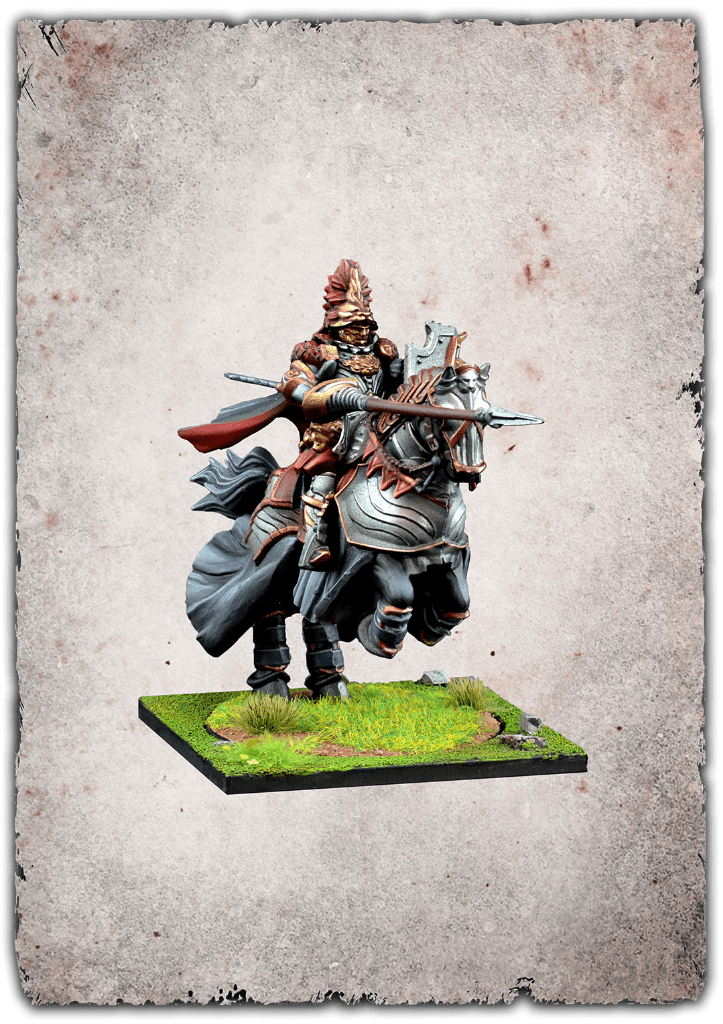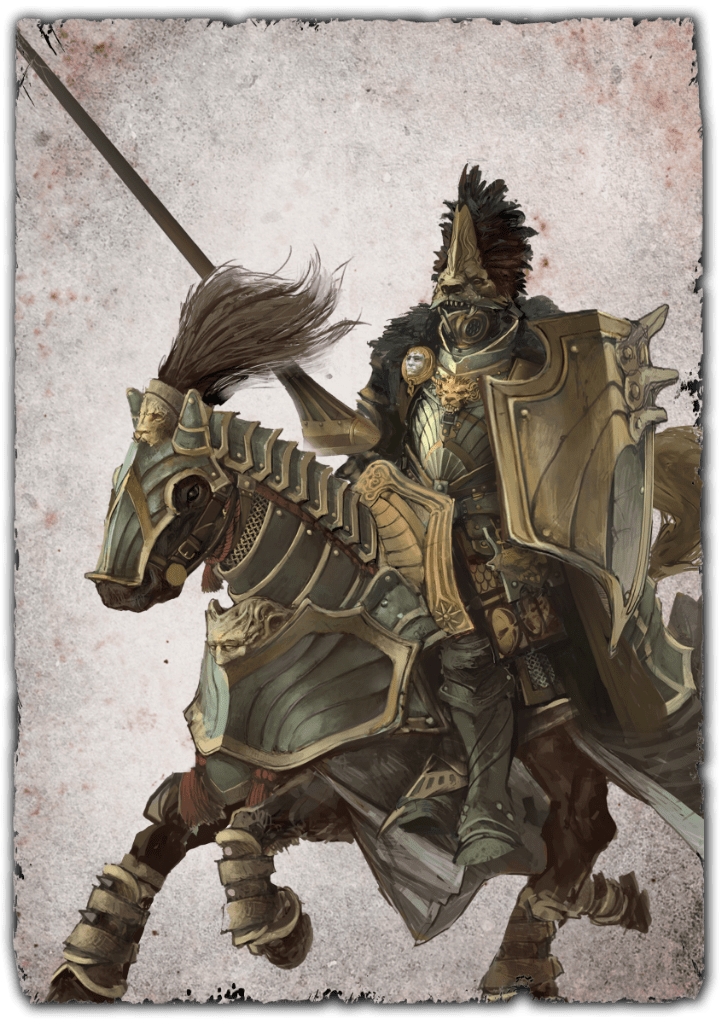Observing the history of the Hundred Kingdoms and their nobles, it is perhaps no surprise that the vast majority of their houses have strong military traditions. When the Long Winter receded and humanity ventured far from the shores of the Bitter Sea, the Orders were stretched too thin to control the nobility. Soon, the paradigm of ‘might is right’ resurfaced among both aspiring and established rulers. To command swords became a matter of survival, to command them effectively promised a long rule and conquest. While the legitimacy of the Divine Right of Kings offered by the Theist Church has swayed many, the old nobility knows that power flows from the edge of the blade.
To this day, the training of a noble’s heirs in all matters military is not just tradition, but standard practice. The source of a noble’s education may vary vastly from one to another and, while theory and strategy are essential parts of their education, this is no pampered or abstract training. Many a present noble lord was once a squire, no different than any other, having spent hours taking care of their sponsor’s horse and equipment and earning their knighthood by blooding their blade. For those whose connections or wealth allow it, this is substituted by years of service as cadets in one of the Imperial Military Academies of Argem, where they undergo vigorous physical training, while also receiving the best possible education on matters of strategy, siege warfare and military logistics.
Whatever the specifics, few question that many a noble’s right to command does not derive simply from the blood coursing through their veins. The prestigious martial tradition of the Hundred Kingdoms demands leaders whose men believe in, whose training and experience foster confidence and whose skill demands admiration. A Noble Lord who issues orders can reasonably expect his men to storm the battlement, one that leads from the front knows his men would brave the gates of hell.



Reviews
There are no reviews yet.